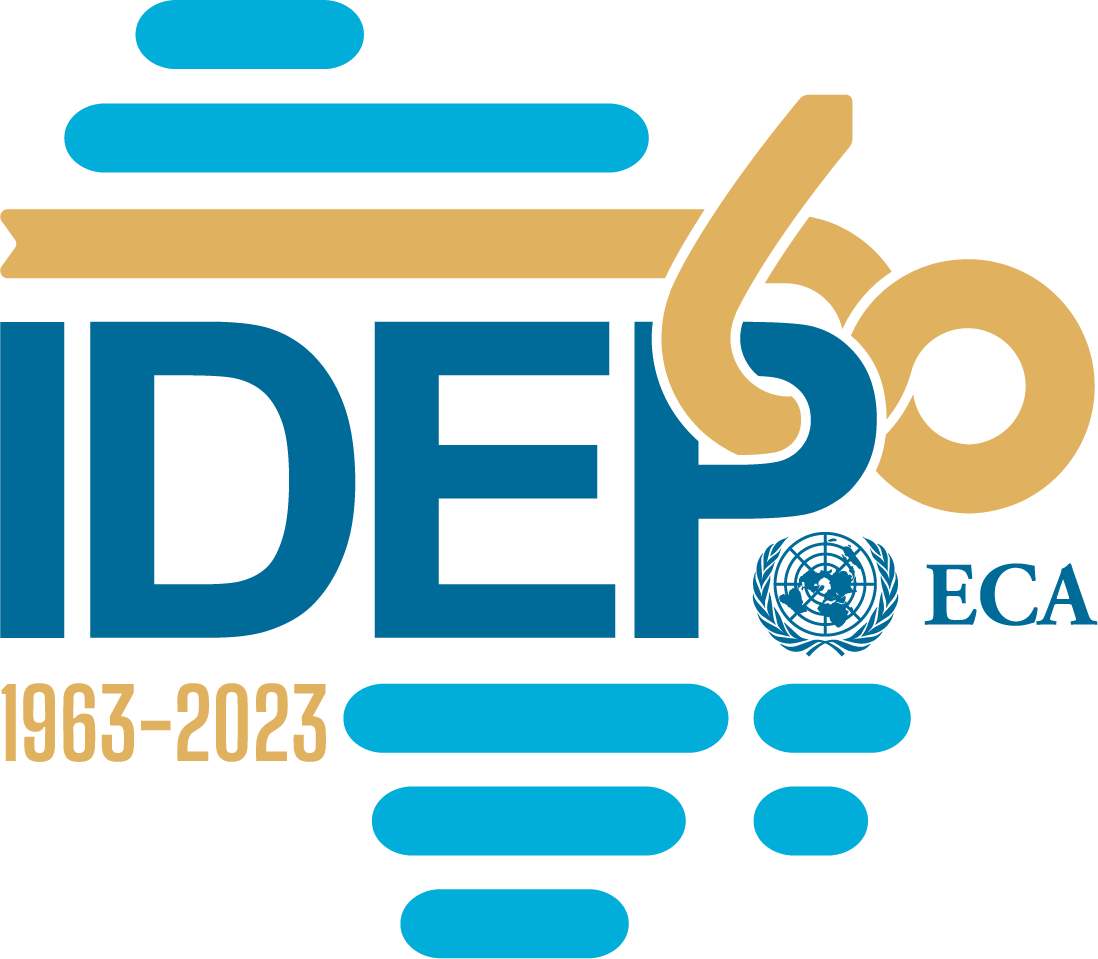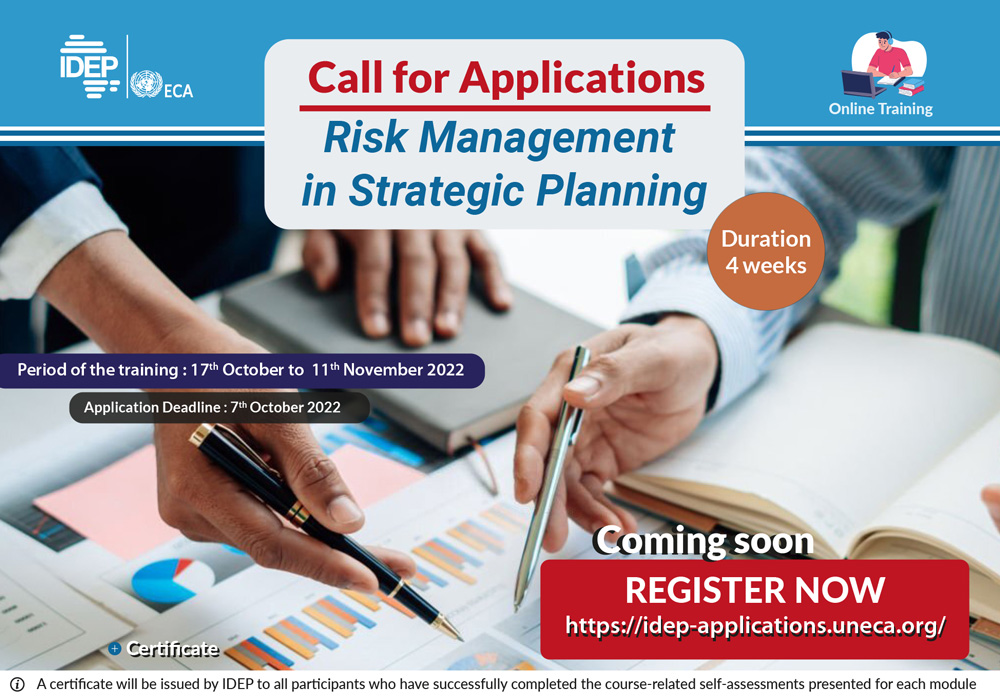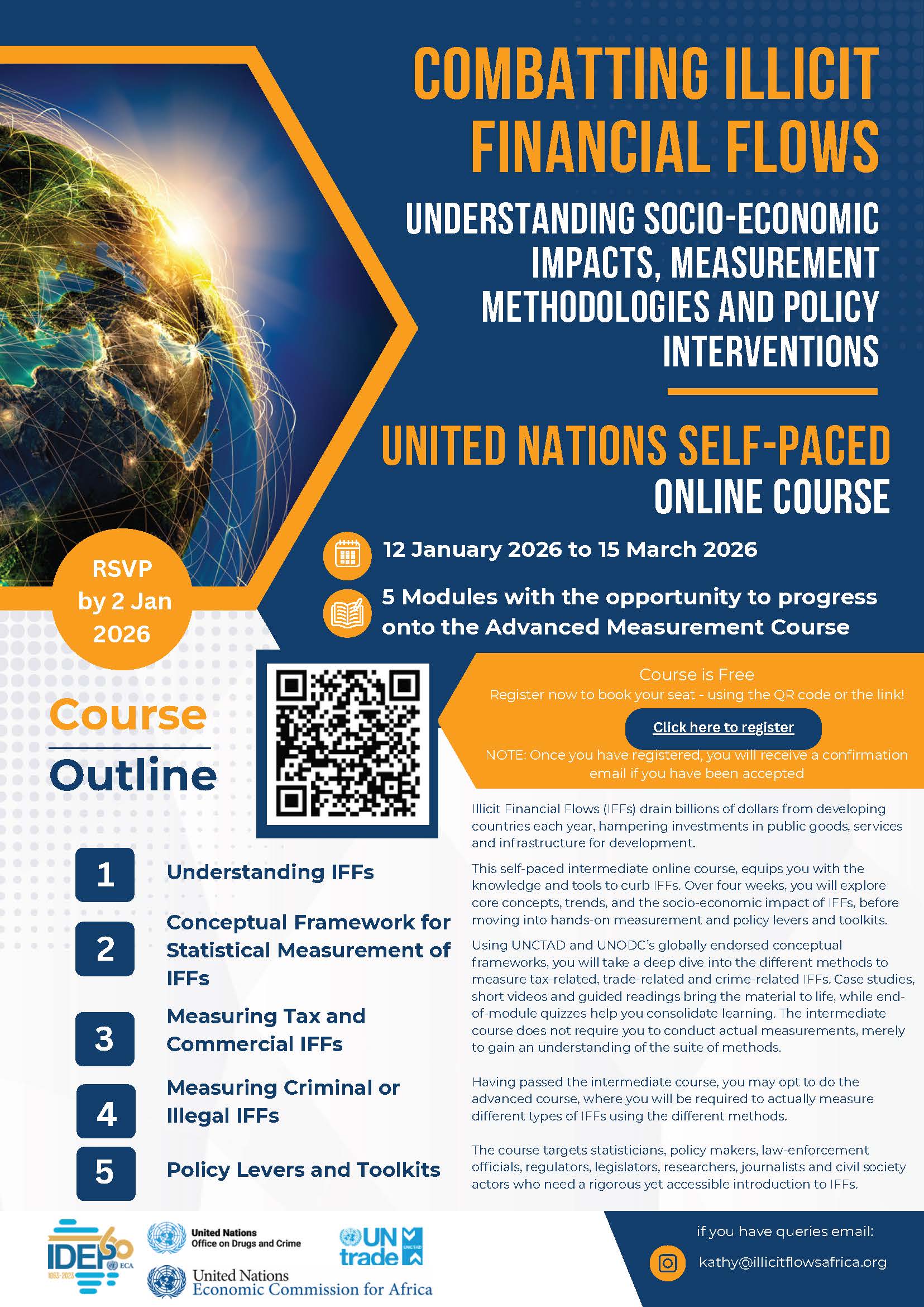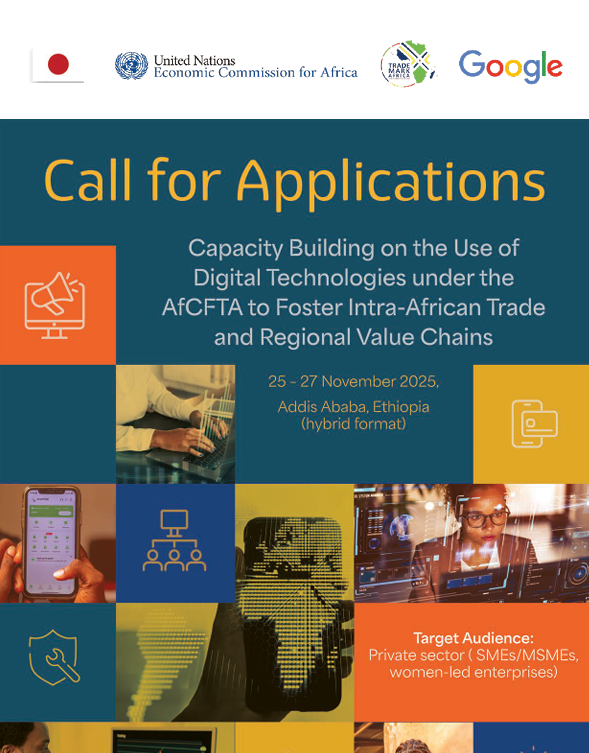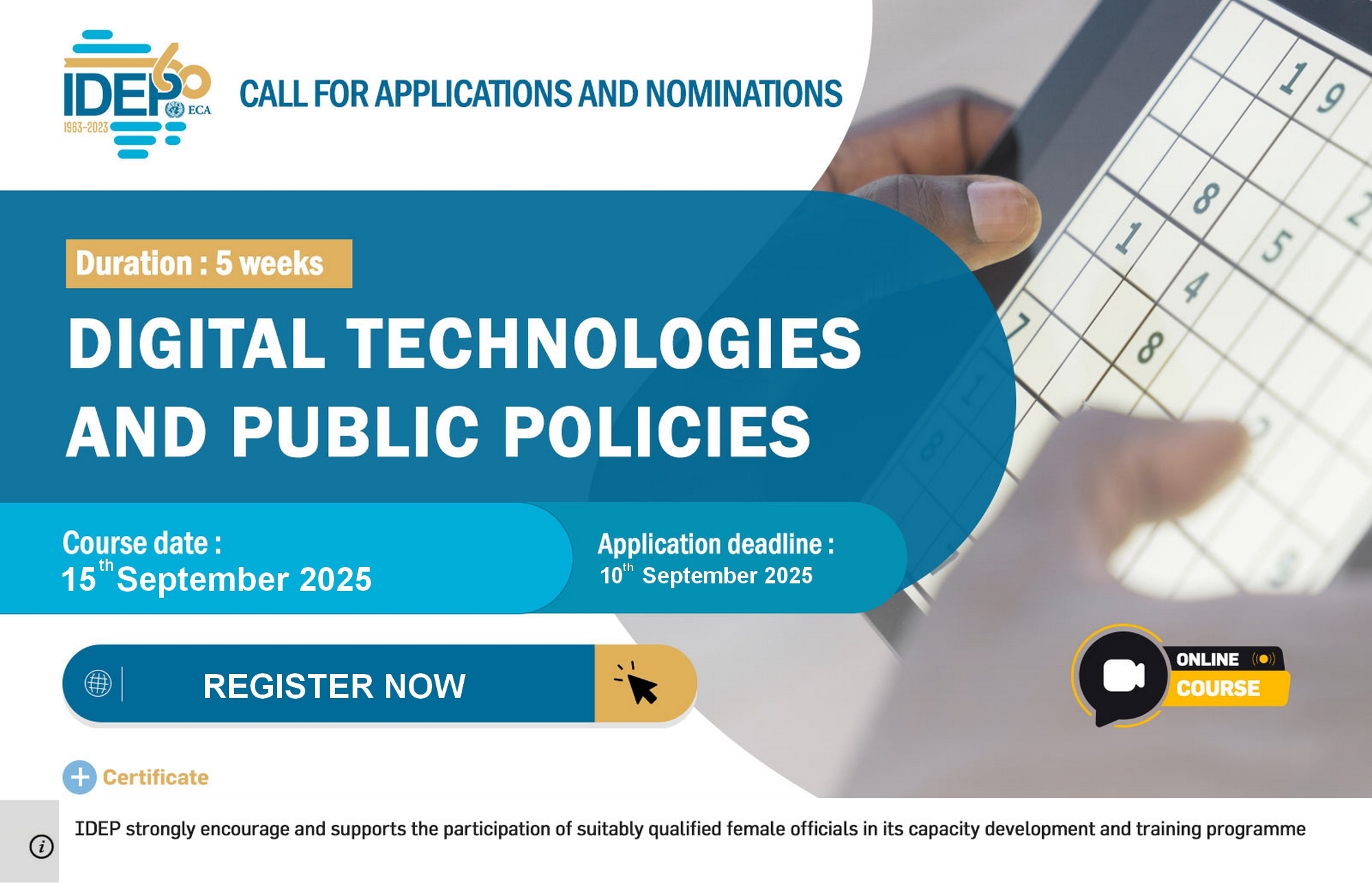Risk Management in Strategic Planning
Announcement in Brief
|
Programme Rationale
The recent two decades were marked by upheaval and structural changes at the global level with consequences on the achievement of organizations’ objectives. As part of the major international crises that affected the world in the third millennium are the SRAS outbreak in 2003, the financial crisis in 2008, the Ebola outbreak from 2014 – 2016, the ongoing COVID-19 pandemic 2020 and more recently the crisis engendered by the Ukraine-Russia conflict. These events negatively impacted the operations of several businesses. Therefore, organizations should embed risk management in their strategy.
Indeed, strategic planning includes a SWOT (Strengths -Weaknesses-Opportunities-Threats) analysis, however some risks may not be identified through this process. This is the reason why a more rigorous and dynamic approach of risk identification, assessment and monitoring should be adopted to better capitalize the opportunities and strengths as well as changing the weaknesses and threats into advantages. The outcome of the risk management is an input for decision-makers within the organization. Thus, mainstreaming risk management into strategic planning could be a useful tool for decision-making as well as an enabler for innovation as it considers the changes in the environment of the organizations both in the short and long run.
Development programs or projects can benefit from this approach, notably the Sustainable Development Goals of the 2030 Agenda as the risks related to COVID-19 pandemic can bring a setback on several development indicators. To this effect, decision-makers both in the public and private sectors should be aware of the strategic risk management for setting more resilient and effective business strategies.
It is against this background that an online course is offered on risk management in strategic planning by the African institute for Economic Development and Planning (IDEP). In light of the setbacks brought by the COVID-19 outbreak on the global economy and the recovery actions undertaken, risk management has been identified by the Institute as a key topic to be covered in its capacity development activities to better build the future.
Objectives
The course aims to build the capacity of African government officials and development planners as well as representatives from the private sector on mainstreaming and managing risk in the strategic planning process; by providing approaches and tools to identify risks, assess them and develop strategies for their mitigation of their effects, in connection with the Sustainable Development Goals (SDGs) and the 2063 agenda of the African Union.

